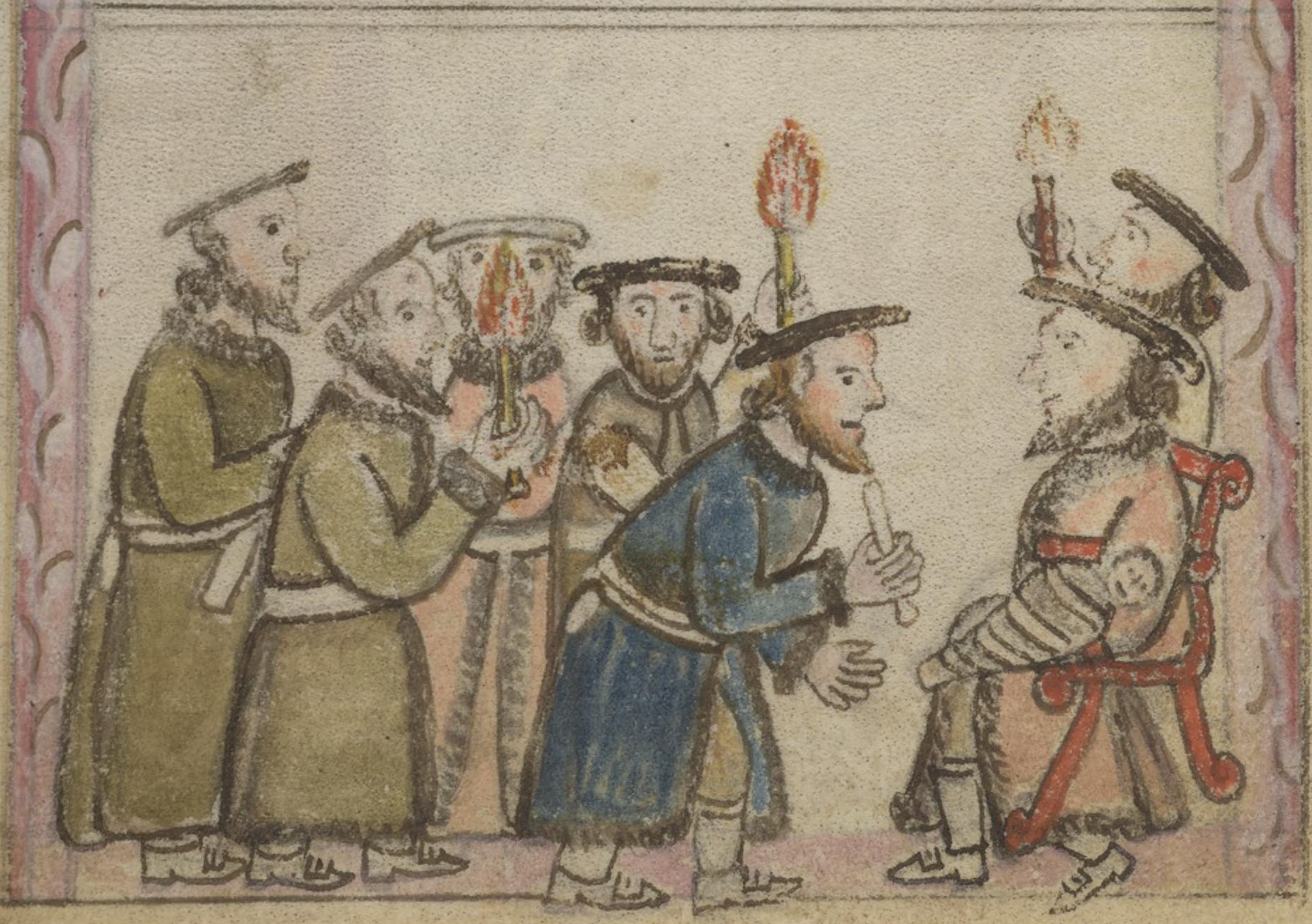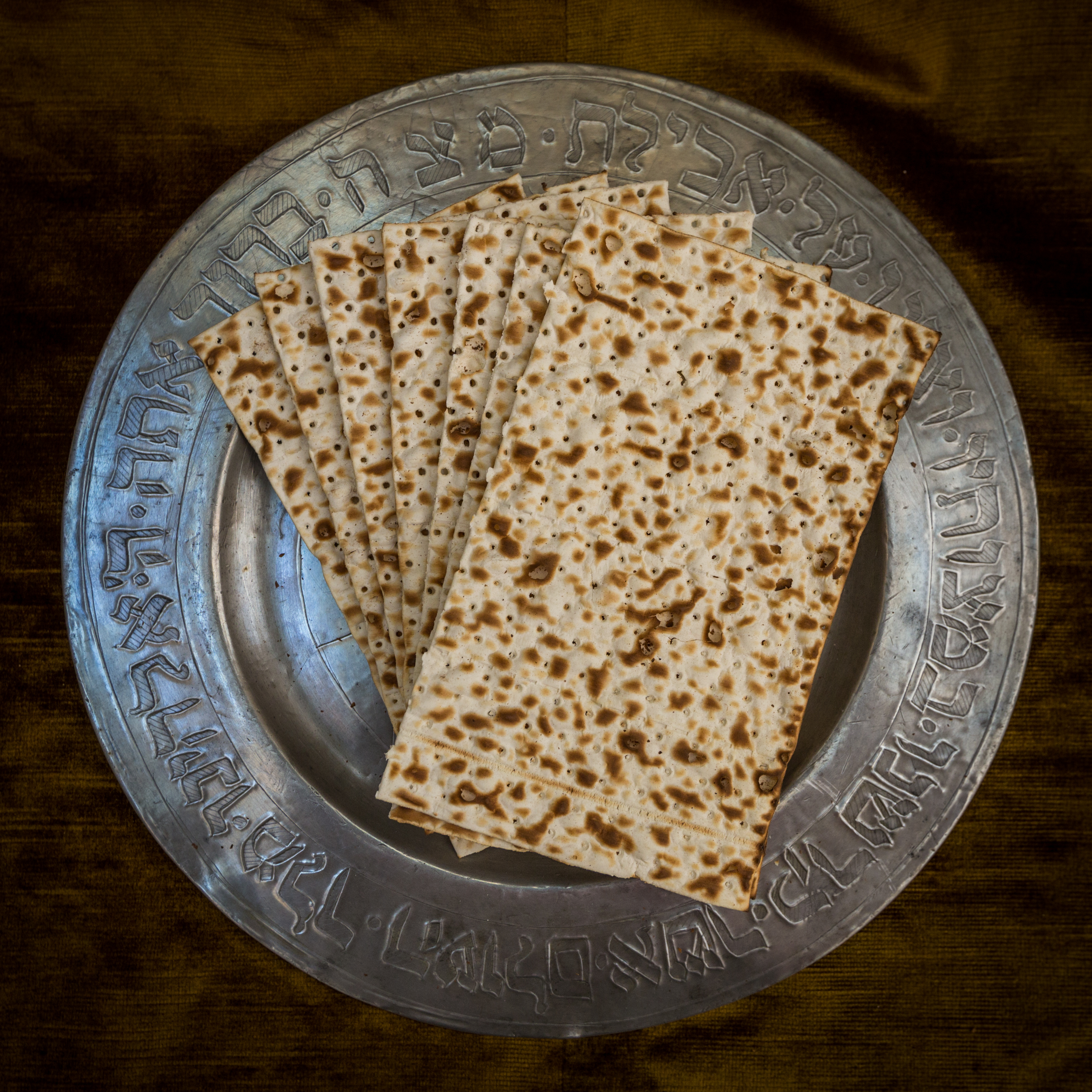|
Shalom Zachar
A Shalom Zachar (also: ''Sholom Zochor'', ''Shulem Zucher'', he, שלום זכר; trans. ''Welcoming the male''; lit. ''Peace be upon the male''), is a gathering which takes place in Ashkenazi Jewish circles on the first Friday night after a baby boy is born. Although intended to "console" the newborn, the get-together is treated as a happy occasion. Sources The source for this practice is the ruling of the Moses Isserles in the Shulchan Aruch, Yoreh De'ah 265:12: It is customary to make a festive meal on the Friday night after the birth of a baby boy. People go to the house where the baby is, to taste something here and this atingis also onsidereda seudat mitzvah. David HaLevi Segal, a major commentator on the Rema, finds the source for the Rema's statement in the Talmudic tractate of Niddah (30b). Here the Talmud states that while a baby develops within the womb, "he is taught the entire Torah. However, as soon as he enters the air of this world, an angel comes and st ... [...More Info...] [...Related Items...] OR: [Wikipedia] [Google] [Baidu] |
Book Of Exodus
The Book of Exodus (from grc, Ἔξοδος, translit=Éxodos; he, שְׁמוֹת ''Šəmōṯ'', "Names") is the second book of the Bible. It narrates the story of the Exodus, in which the Israelites leave slavery in Biblical Egypt through the strength of Yahweh, who has chosen them as his people. The Israelites then journey with the prophet Moses to Mount Sinai, where Yahweh gives the 10 commandments and they enter into a covenant with Yahweh, who promises to make them a "holy nation, and a kingdom of priests" on condition of their faithfulness. He gives them their laws and instructions to build the Tabernacle, the means by which he will come from heaven and dwell with them and lead them in a holy war to possess the land of Canaan (the "Promised Land"), which had earlier, according to the story of Genesis, been promised to the seed of Abraham. Traditionally ascribed to Moses himself, modern scholars see its initial composition as a product of the Babylonian exile (6th ce ... [...More Info...] [...Related Items...] OR: [Wikipedia] [Google] [Baidu] |
Judaism And Children
Judaism ( he, ''Yahăḏūṯ'') is an Abrahamic religions, Abrahamic, monotheism, monotheistic, and ethnic religion comprising the collective religious, cultural, and legal tradition and civilization of the Jewish people. It has its roots as an organized religion in the Middle East during the Bronze Age. Modern Judaism evolved from Yahwism, the religion of History of ancient Israel and Judah, ancient Israel and Judah, by the late 6th century BCE, and is thus considered to be one of the oldest monotheistic religions. Judaism is considered by religious Jews to be the expression of Mosaic covenant, the covenant that God in Judaism, God established with the Israelites, their ancestors. It encompasses a wide body of texts, practices, theological positions, and forms of organization. The Torah, as it is commonly understood by Jews, is part of the larger text known as the Tanach, ''Tanakh''. The ''Tanakh'' is also known to secular scholars of religion as the Hebrew Bible, and to C ... [...More Info...] [...Related Items...] OR: [Wikipedia] [Google] [Baidu] |
Jewish Law And Rituals
Jews ( he, יְהוּדִים, , ) or Jewish people are an ethnoreligious group and nation originating from the Israelites Israelite origins and kingdom: "The first act in the long drama of Jewish history is the age of the Israelites""The people of the Kingdom of Israel and the ethnic and religious group known as the Jewish people that descended from them have been subjected to a number of forced migrations in their history" and Hebrews of historical Israel and Judah. Jewish ethnicity, nationhood, and religion are strongly interrelated, "Historically, the religious and ethnic dimensions of Jewish identity have been closely interwoven. In fact, so closely bound are they, that the traditional Jewish lexicon hardly distinguishes between the two concepts. Jewish religious practice, by definition, was observed exclusively by the Jewish people, and notions of Jewish peoplehood, nation, and community were suffused with faith in the Jewish God, the practice of Jewish (religious) la ... [...More Info...] [...Related Items...] OR: [Wikipedia] [Google] [Baidu] |
Brit Milah
The ''brit milah'' ( he, בְּרִית מִילָה ''bərīṯ mīlā'', ; Ashkenazi Hebrew, Ashkenazi pronunciation: , "Covenant (religion), covenant of circumcision"; Yiddish pronunciation: ''bris'' ) is Religion and circumcision, the ceremony of circumcision in Judaism. According to the Book of Genesis, God in Judaism, God commanded the Patriarchs (Bible), biblical patriarch Abraham to be circumcised, an act to be followed by his male descendants on the eighth day of life, symbolizing Covenant of the pieces, the covenant between God and the Jewish people. Today, it is generally performed by a mohel on the eighth day after the infant's birth and is followed by a celebratory meal known as ''seudat mitzvah''. ''Brit Milah'' is considered among the 613 commandments, most important and central commandments in Judaism, and the rite has played a central role in Jewish history, the formation and history of Jewish culture, Jewish civilization. The Talmud, when discussing the importa ... [...More Info...] [...Related Items...] OR: [Wikipedia] [Google] [Baidu] |
Sephardic Jews
Sephardic (or Sephardi) Jews (, ; lad, Djudíos Sefardíes), also ''Sepharadim'' , Modern Hebrew: ''Sfaradim'', Tiberian: Səp̄āraddîm, also , ''Ye'hude Sepharad'', lit. "The Jews of Spain", es, Judíos sefardíes (or ), pt, Judeus sefarditas or Hispanic Jews, are a Jewish diaspora population associated with the Iberian Peninsula. The term, which is derived from the Hebrew ''Sepharad'' (), can also refer to the Mizrahi Jews of Western Asia and North Africa, who were also influenced by Sephardic law and customs. Many Iberian Jewish exiles also later sought refuge in Mizrahi Jewish communities, resulting in integration with those communities. The Jewish communities of the Iberian Peninsula prospered for centuries under the Muslim reign of Al-Andalus following the Umayyad conquest of Hispania, but their fortunes began to decline with the Christian ''Reconquista'' campaign to retake Spain. In 1492, the Alhambra Decree by the Catholic Monarchs of Spain called for the expul ... [...More Info...] [...Related Items...] OR: [Wikipedia] [Google] [Baidu] |
Flour
Flour is a powder made by grinding raw grains, roots, beans, nuts, or seeds. Flours are used to make many different foods. Cereal flour, particularly wheat flour, is the main ingredient of bread, which is a staple food for many cultures. Corn flour has been important in Mesoamerican cuisine since ancient times and remains a staple in the Americas. Rye flour is a constituent of bread in central and northern Europe. Cereal flour consists either of the endosperm, germ, and bran together (whole-grain flour) or of the endosperm alone (refined flour). ''Meal'' is either differentiable from flour as having slightly coarser particle size (degree of comminution) or is synonymous with flour; the word is used both ways. For example, the word '' cornmeal'' often connotes a grittier texture whereas corn flour connotes fine powder, although there is no codified dividing line. The CDC has cautioned not to eat raw flour doughs or batters. Raw flour can contain bacteria like '' E. col ... [...More Info...] [...Related Items...] OR: [Wikipedia] [Google] [Baidu] |
Matzah
Matzah or matzo ( he, מַצָּה, translit=maṣṣā'','' pl. matzot or Ashk. matzos) is an unleavened flatbread that is part of Jewish cuisine and forms an integral element of the Passover festival, during which ''chametz'' (leaven and five grains that, per Jewish Law, are self-leavening) is forbidden. As the Torah recounts, God commanded the Israelites (modernly, Jews and Samaritans) to eat only unleavened bread during the seven day Passover festival. Matzah can be either soft like a pita loaf or crispy. Only the crispy variety is produced commercially because soft matzah has a very short shelf life. Matzah meal is crispy matzah that has been ground to a flour-like consistency. Matzah meal is used to make matzah balls, the principal ingredient of matzah ball soup. Sephardic Jews typically cook with matzah itself rather than matzah meal. Matzah that is kosher for Passover is limited in Ashkenazi tradition to plain matzah made from flour and water. The flour may be who ... [...More Info...] [...Related Items...] OR: [Wikipedia] [Google] [Baidu] |
Passover
Passover, also called Pesach (; ), is a major Jewish holidays, Jewish holiday that celebrates the The Exodus, Biblical story of the Israelites escape from slavery in Ancient Egypt, Egypt, which occurs on the 15th day of the Hebrew calendar, Hebrew month of Nisan, the first month of Aviv, or spring. The word ''Pesach'' or ''Passover'' can also refer to the Passover sacrifice, Korban Pesach, the paschal lamb that was offered when the Temple in Jerusalem stood; to the Passover Seder, the ritual meal on Passover night; or to the Feast of #Matzah, Unleavened Bread. One of the biblically ordained Three Pilgrimage Festivals, Passover is traditionally celebrated in the Land of Israel for seven days and for eight days among many Jews in the Jewish diaspora, Diaspora, based on the concept of . In the Bible, the seven-day holiday is known as Chag HaMatzot, the feast of unleavened bread (matzo). According to the Book of Exodus, God commanded Moses to tell the Israelites to mark a lamb's bl ... [...More Info...] [...Related Items...] OR: [Wikipedia] [Google] [Baidu] |
Afikomen
Afikoman (Mishnaic Hebrew: אֲפִיקִימוֹן ''ʾăpîqîmôn'';So spelled and vocalized in de Rossi 138 (Parma A) and Kaufmann A50; also spelled in the Cambridge manuscript and by the "Rabbi Jehoseph" cited by Adeni. Modern pronunciation: אֲפִיקוֹמָן ''ʾăpîqômān'') based on Greek ''epikomon'' ��πὶ κῶμονor ''epikomion'' ��πικώμιον meaning "that which comes after" or "dessert"), a word originally having the connotation of "refreshments eaten after the meal", is now almost strictly associated with the half-piece of ''matzo'' which is broken in two during the early stages of the Passover Seder and set aside to be eaten as a dessert after the meal. Based on the Mishnah in Pesahim 119b, the ''afikoman'' is a substitute for the Passover sacrifice, which was the last thing eaten at the Passover meal during the eras of the First and Second Temples and during the period of the Tabernacle. The Talmud states that it is forbidden to have any other ... [...More Info...] [...Related Items...] OR: [Wikipedia] [Google] [Baidu] |
Passover Seder
The Passover Seder (; he, סדר פסח , 'Passover order/arrangement'; yi, סדר ) is a ritual feast at the beginning of the Jewish holiday of Passover. It is conducted throughout the world on the eve of the 15th day of Nisan in the Hebrew calendar (i.e., at the start of the 15th; a Hebrew day begins at sunset). The day falls in late March or in April of the Gregorian calendar; Passover lasts for seven days in Israel and eight days outside Israel. Jews traditionally observe one seder if in Israel and two (one on each of the first two nights) if in the Jewish diaspora. The Seder is a ritual involving a retelling of the story of the liberation of the Israelites from slavery in ancient Egypt, taken from the Book of Exodus (''Shemot'') in the Jewish Torah. The Seder itself is based on the Hebrew Bible, Biblical verse 613 Mitzvot, commanding Jews to retell the story of the The Exodus, Exodus from Egypt: "You shall tell your child on that day, saying, 'It is because of what Tetragr ... [...More Info...] [...Related Items...] OR: [Wikipedia] [Google] [Baidu] |








